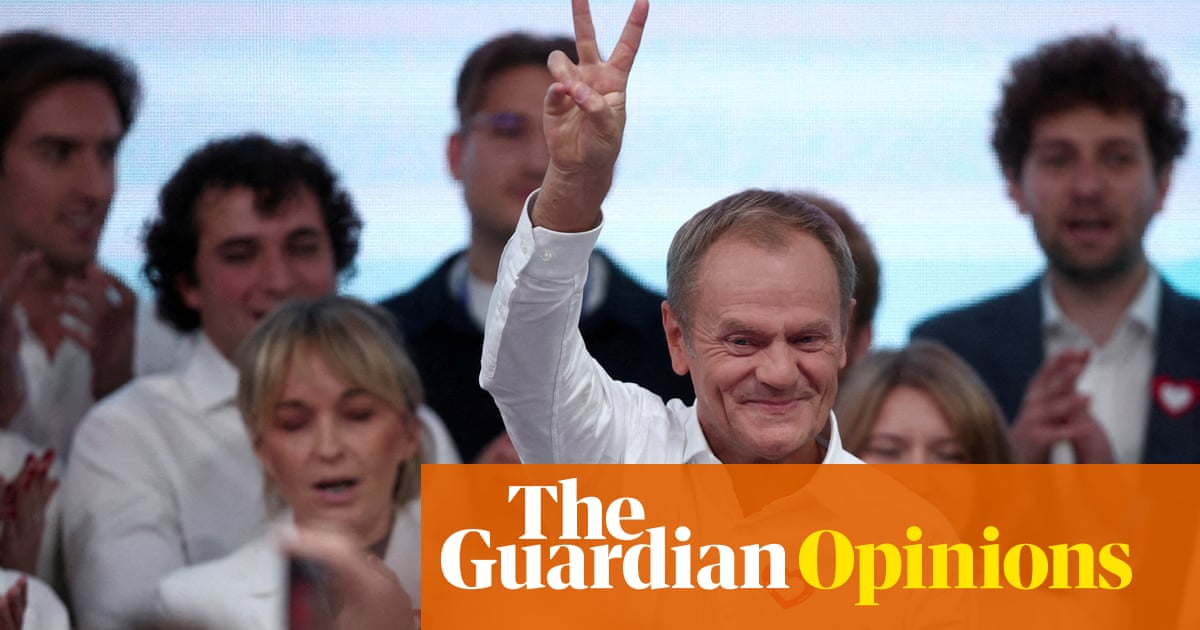
ast Sunday, the Polish president, Andrzej Duda, was re-elected by a narrow margin with the help of an assault on what he styled “LGBT ideology”: he campaigned on a “family charter” to protect Poles from this new threat, worse than communism.
Two of Poland’s near neighbours have recently activated anti-LGBT politics in similar ways. In May, Viktor Orbán’s Hungarian government passed a law that makes it impossible for trans people to change their gender on legal documents. And last month, Russians voted by a landslide to approve Vladimir Putin’s Russian constitution: among its many amendments is one that marriage can only be between a man and a woman.
Already, Russia’s lawmakers are explicitly using the new constitution to threaten freedoms associated with the liberal west: on Tuesday, Yelena Mizulina, the woman responsible for Russia’s anti-“gay propaganda” law, proposed legislation barring trans people from adopting children, or from establishing families – including getting married – after transitioning.
For the first time since 1918, “God” is written into Russia’s constitution, which now also mandates the teaching of “patriotism”, and urges citizens to resist (western) falsification of their history. “We are not just going to vote on legal amendments,” Putin said. “We are voting for the country in which we want to live.”
For which read: not Europe. Leaders like Putin, Orbán and Duda use LGBTQ+ people to draw what can be called a pink line against a western secular liberalism that allegedly threatens the “traditional values” of the homeland. This plays on deep-rooted anxieties about globalisation and the digital revolution, and the fear of a loss of control that comes with the opening of borders to new ideas and new people – or, in the case of LGBTQ+ people, those who have been there all along, but now demand to be seen.
This culture wars tactic has undergone a significant shift in recent years: whereas it used to oppose “lifestyles” or “rights”, it is now sets itself against “ideology”; this allows it to assume the status of a counter-hegemonic force – and also to claim, as more people come out of the closet, that it is “not personal”. “LGBT are not people, but ideology,” said Duda when he launched his charter.
In recent years conservative Christians have gravitated towards opposing “gender ideology”, of which “LGBT ideology” is a subset. The archbishop of Krakow, Marek Jędraszewski, encapsulated the argument last year: while Poland was “no longer affected by the red plague,” he said, there was a “new one that wants to control our souls, hearts and minds … not Marxist, Bolshevik, but born of the same spirit, neo-Marxist. Not red, but rainbow.”
This call has particular power for east Europeans, given Soviet history, and so is useful to politicians like Duda or Orbán. But it has been deployed the world over, from Latin America to Asia.
In Brazil, Jair Bolsonaro attained his popularity in part by piggy-backing on to a powerful grassroots religious movement determined to expel “gender ideology” from schools by banning sexuality education. He promised to restore the natural order to a corrupt and decadent country exemplified by the way his leftwing predecessors granted rights to LGBTQ+ people.
And in the United States, Donald Trump’s government has played to its conservative base by withdrawing regulatory protections for trans children in schools, and banning trans people from military service. Last month, it ruled that they are not protected from discrimination in healthcare – even as the supreme court outlawed such discrimination in the workplace.
For populist politicians like Trump or Bolsonaro, this plays to a particular constituency: disaffected voters who perceive they have been marginalised due to identity politics gone mad, and that their needs have been subordinated to the interests of outsiders, foreign or dark or queer.
Little wonder that, in a survey last year, 31% of young Polish men said they believed “the LGBT movement and gender ideology” was the biggest threat to Poland – more than the climate crisis or Russia. Or that a fight against “LGBT ideology” helped bring out the vote for Andrzej Duda.
But despite Duda’s victory, the Polish election results could be read another way. Before the election was initially postponed in May, because of coronavirus, Duda was the runaway favourite, not least because of his government’s social welfare policies. And yet, last weekend, he won with a tiny margin in the runoff against moderate liberal Rafał Trzaskowski.
As Warsaw’s urbane mayor, Trzaskowski has (mildly) supported LGBT rights, and Duda used this to paint his opponent as Europe’s stooge. But the 48.8% of Polish voters who chose him did so in part because his pro-European modernism appealed to them: to many, particularly those younger and urban voters, an acceptance of gay and trans people is key part of that.
• Mark Gevisser is the author of The Pink Line: The World’s Queer Frontiers












